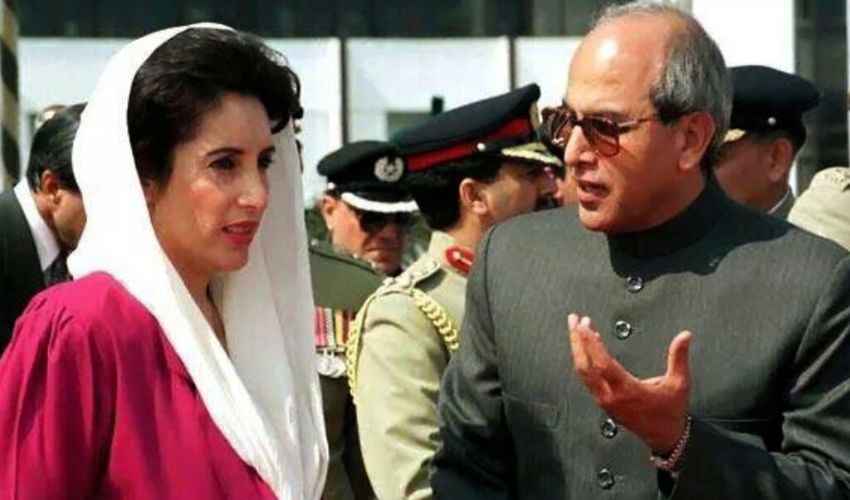Supreme Court Hears Decades-Old Benazir Bhutto Phone-Tapping Case
The Supreme Court of Pakistan’s constitutional bench has resumed hearings on a decades-old review petition filed by former Prime Minister Benazir Bhutto and Yousaf Raza Gilani. The petition, initially submitted in 1997, challenges the dismissal of Benazir Bhutto’s government and allegations of phone tapping during the tenure of then-President Sardar Farooq Khan Leghari.
Justice Jamal Mandokhel underscored the significance of the case, noting its potential to impact several pending cases. Meanwhile, an additional attorney general presented an outline of the 2013 law allowing phone tapping by the ISI and IB under judicial oversight.
- Judicial Oversight: Justice Mazhar questioned the mechanism for judicial approval of phone tapping, emphasizing that the law does not allow unauthorized individuals to intercept communications.
- Pending Notices: Notices were issued to advocate generals as the case was adjourned for further hearings.
Background of the Benazir Bhutto Phone-Tapping Case
The review petition stems from a January 29, 1997, Supreme Court decision, where a seven-member bench upheld the dismissal of Benazir Bhutto’s government and the dissolution of the National Assembly by President Sardar Farooq Khan Leghari on November 5, 1996. The petition, filed shortly after the judgment, remained unheard for an unprecedented 28 years.
The 1996 dismissal of Benazir Bhutto’s government was a pivotal moment in Pakistan’s political history, raising questions about executive powers, judicial oversight, and the rights of public officials. The ongoing proceedings aim to address these longstanding concerns and set a precedent for similar cases.
The outcome of this case holds considerable weight, not only for resolving past grievances but also for shaping future legal interpretations of phone-tapping laws and judicial oversight in Pakistan.


